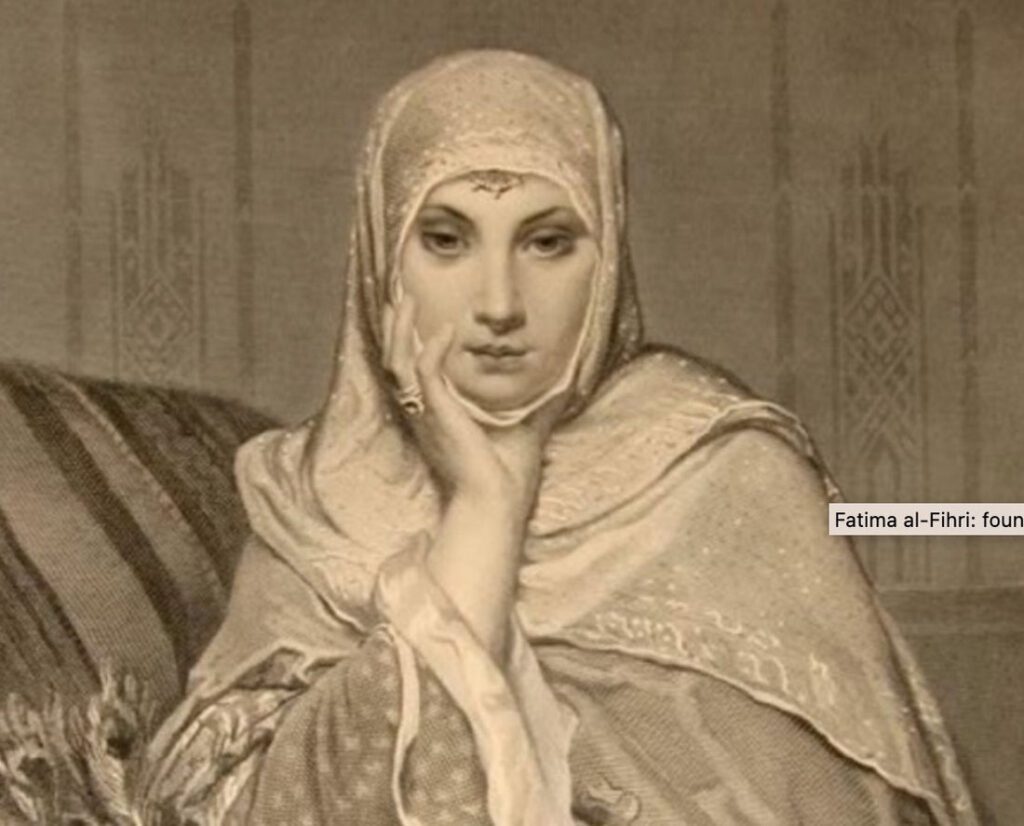Islam and Women’s Rights: A Historical and Modern Reality
People often misunderstand what Islam says about women’s rights. Many focus only on what happens in certain countries or cultures, rather than looking at what Islam actually teaches. To understand the full picture, we need to go back to the original message of Islam, the time in which it began, and how those teachings still challenge unfair treatment of women, both in Muslim communities and around the world.
Islam Introduced Women’s Rights for the First Time in the Arabian Peninsula
Prophet Muhammad (peace be upon him) was one of the first figures in recorded history to explicitly stand up for women’s rights. His teachings emphasized compassion, equality, and the sanctity of women’s status in society. He said:
“The rights of women are sacred. See that women are maintained in the rights assigned to them.” (Hadith)
“God enjoins you to treat women well, for they are your mothers, daughters, aunts.” (Hadith)
“Paradise lies under the feet of your mother.” (Hadith)
These Hadiths emphasize the immense respect, honor, and gratitude owed to women, suggesting that treating them with kindness and dignity is a path to divine reward. But to truly appreciate the revolutionary nature of these statements, we must examine the world into which they were introduced.
The 6th-Century Arabian Context:
In the 6th century, with the arrival of the Prophet Muhammad (peace be upon him), rights were granted to women at a time when they had virtually none. For the Arab Bedouins and tribal societies of the time, it was a profound shock to hear a man from among them claiming that a divine revelation had come to him calling them to worship only one God and to treat women with dignity by granting them rights.
Imagine, for a moment, the reaction of these 6th-century desert dwellers, where the birth of a daughter was often viewed as a burden or even a source of shame. In some tribes, female infanticide was tragically practiced: newborn girls were buried alive. These same communities worshipped idols and statues they bought and sold in the largest market of their time, the market of Mecca. This religious commerce formed the core of their economy and their primary source of income. Caravans arrived from distant lands such as Syria, Iran, and Iraq to trade in these objects of devotion.
Then, a man named Muhammad stood up and urged them to abandon the idols they had fashioned with their own hands and to cease profiting from them. He proclaimed that there is only one God who cannot be bought or sold.
Perhaps most striking of all was his message concerning the treatment of women. He declared that their treatment of women, whether wives, mothers, or daughters was unjust, and that God had granted women rights: the right to inherit, to be educated, to earn a wage, to own property, to accept or refuse marriage, to seek divorce, and to participate fully in social and economic life.
Modern Misconceptions and the Global Perception of Muslim Women
Fast forward to today and critics of Islam and Muslims often highlight the oppression of Muslim women, often influenced by news reports from impoverished countries like Afghanistan under the Taliban regime. At the same time, in Muslim-majority countries, there is a lack of understanding about the struggles women face in the West, such as how women are exploited and degraded in the adult film industry, sex trafficking, or the economic and social pressures that drive some to sell their image or body on platforms like OnlyFans in order to meet their basic needs.
The majority’s views:
While most intelligent people in Muslim countries understand that not all Western women degrade themselves to make a living or to survive, similarly, most intelligent people in the West also recognize the deep respect Islam and Muslims have for women, particularly their mothers.
Women’s Struggle Throughout History (the worst being from the 15th to 18th century):
It is also important to recognize that the oppression of women is not unique to some of the Muslim societies. Historically, women in the West were denied fundamental rights for centuries. For example, Muslim women had the right to own property as early as the 7th century, while similar rights were only granted to women in England in 1882, in the U.S. in 1848, and in France in 1907.
Any historian will tell you that, unfortunately, for much of history, women in the West were considered spiritually inferior to men and were denied fundamental rights.
There are many examples illustrating the suffering of non-Muslim women in the West, from the early Crusades to the early 19th century, but one of the most striking cases dates back to the 15th century, when Pope Innocent VIII issued a papal bull entitled Summis Desiderantes Affectibus (in 1484), authorizing the Inquisition to investigate witchcraft. This led to the publication of the infamous Malleus Maleficarum (The Hammer of Witches) in 1487, a manual describing how to identify and punish women accused of witchcraft.
For nearly 300 years, between the 15th and 18th centuries, Europe was the scene of witch hunts fuelled by superstition and religious persecution. Women were often wrongly accused of causing diseases, crop failures, famines, plagues or other misfortunes. These accusations frequently led to death sentences. It is estimated that about 60,000 women were burned alive, although some researchers suggest higher numbers. Others were hanged or drowned.
In many Western societies, women had no legal rights to own property, inherit, work, or vote. It was only during the 19th and early 20th centuries that they gradually gained these rights, such as the right to vote, and to earn a salary, thanks to feminist movements and the fight for women’s suffrage.
The 21st Century: Muslim Women in the West:
In contrast to the present day, the Prophet Muhammad (pbuh) granted rights to women more than 14 centuries ago, fundamental rights such as the right to education, to work, and to dignity. Today, in several so-called developed countries in Europe, these 3 basic human rights are often questioned for practicing Muslim women.
In countries like France, Germany, Belgium, the Netherlands, Austria, and other European nations, some Muslim women born and raised locally face obstacles to accessing certain public sector jobs, particularly in education, in the judiciary system, police, or politics, due to their refusal to remove the hijab, a veil worn as an act of worship.
What many public decision-makers seem unaware of (or often choose to ignore) is that wearing the hijab is not simply a clothing accessory. It is an act of worship, a permanent pledge to God. It is not something that can be removed at will. Once a woman decides to wear the veil, it is somewhat like a tattoo: she cannot take it off.
Some governments justify these restrictions by invoking secularism and the general ban on religious symbols. However, only few religions require their followers to wear specific clothing in daily life, most notably Islam for women and Sikhism for men, who must cover their hair, which is not a choice, unlike wearing a necklace with a crucifix or a kippah which can be removed at will.
This would be entirely understandable if the ban concerned the niqab (face veil), which would be justified for many reasons. But banning a simple piece of cloth covering the hair? That seems disproportionate and raises serious questions of discrimination.
Double Standards and Restriction by Another Name:
In my opinion, in those countries—often led by men in positions of power—choose to impose restrictions on women in ways that, while different in form, echo the practices of the Taliban in Afghanistan. Some Western governments limit women’s freedom by denying them the right to choose what they can wear, and how they live their personal lives and express their identity. By preventing women from wearing the veil, they also restrict (just like the Taliban do) their access to work and in some cases to education, fully aware that these women will choose God and their faith first (in this case, by keeping their hijabs on).
Many highly educated Muslim women living in these countries often find themselves forced to depend primarily on their husband’s income.
Unfortunately, in the event of divorce or the death of their spouse, they often have no choice but to rely on social welfare—even though they could easily contribute actively to society thanks to their skills and training.
Basic human rights:
In countries like Canada, where human rights are upheld by the Supreme Court, it’s common to see police officers (both male and female) covering their hair, as well as teachers, lawyers, and even ministers, such as Harjit Singh Sajjan, the Minister of National Defence, wearing turbans. This right wasn’t automatically granted; it was the result of Baltej Singh Dhillon’s legal battle, which he won in 1990 before the Supreme Court of Canada. Unfortunately, in France, where there are 6 million Muslims, no one dares to challenge the government in court for their basic human rights. The French government is also very aware that the majority of Muslims do not vote, even though voting should be an obligation for all Muslims. During the time of the Prophet Muhammad (pbuh), there was a strong emphasis on consultation and collective decision-making, as this was demonstrated several times during his prophecy.


Below are other FAQs about women in Islam:
1. What is the status of women in Islam?
Answer: In Islam, women are regarded as equal in dignity and humanity to men. Both men and women are equally accountable to God, with identical rewards and punishments based on their actions.
2. What rights do women have in Islam?
Answer: Islam granted women a wide range of rights at a time when no other society did, including the right to education, the right to work, the right to participate in social, economic, and political life, the right to own property, those rights were granted to her 1400 years ago.
3. Can women seek education in Islam?

Answer: Yes, Islam encourages both men and women to seek knowledge. Matter of fact Muslim’s women were highly educated. The first university in human history ever built is generally considered to be the University of al-Qarawiyyin (also spelled Al-Karaouine), located in Fez, Morocco. It was founded in 859 AD by a Muslim women Fatima al-Fihri, she was born into a wealthy family and was highly intelligent. This university is recognized by UNESCO and the Guinness World Records as the oldest existing, continually operating degree-granting university in the world.
As mentioned on page 13 – “Knowledge in Islam” throughout early Islamic history, particularly during the “Islamic Golden Age” (from the 8th to the 15th century) when science, mathematics, philosophy, physics, chemistry, and medicine flourished mainly in the Islamic world, Europeans would come to study and learn from Muslims and during those centuries Muslims women played active roles in all aspects of the society. Female religious scholars, for instance, were not uncommon. Scholars such as Mohammad Akram Nadwi have documented the lives of over 8,000 female jurists during the 8th to 15th century, who were legal scholars deeply knowledgeable in the field of Sharia law, while Ignaz Goldziher estimated that around 15% of medieval Hadith scholars were women.
4. What does Islam say about a woman’s role in the family?
Answer: Islam places great importance on the role of women in the family, particularly as mothers. The Prophet Muhammad (pbuh) emphasized the high status of mothers, saying, “Paradise lies under the feet of your mother.“
5. Are women allowed to work outside the home in Islam?
Answer: Yes, Islam permits women to work, Prophet Muhammad (pbuh) made sure of that and it is recorded that in less than 80 years after his passing, in 710AD a very smart women by the name of Umm Warqa, who was appointed by Caliph Omar to lead the market committees in both Medina and Mecca, becoming the first woman to hold such a position, the equivalent of the CEO of a major corporation today.
6. What is the Islamic perspective on women’s modesty?
Answer: Islam encourages modesty for both men and women. Women are instructed to dress modestly, with the option of wearing the hijab.
7. What does Islam say about women’s involvement in politics?
Answer: Islam does not prohibit women from participating in politics. Women have historically held high leadership roles in Islamic societies, such as the first female governor in Islamic history, Shifa bint Abdullah, who was appointed by the Caliph Umar ibn al-Khattab.
8. Are women allowed to divorce in Islam?
Answer: Yes, women have the right to seek divorce (called khula) in Islam if the marriage is causing harm or is no longer viable. They can also initiate divorce through the courts.
Additional historical facts:
Unfortunately, the progress made during the Islamic Golden Age diminished over time due to political instability in Muslim countries. Furthermore, Western colonization played a major role in disrupting these societies, exploiting their natural resources, and dismantling their educational systems. For example, my father who was born in 1935 and who came from a small rural village in Algeria, was not allowed to go to school under French colonial rule (France occupied and governed Algeria for 132 years, from 1830 to 1962). Around 80 to 90% of the Algerian population could neither read nor write when France was forced to leave Algeria in 1962. My father was a very intelligent man, and he could have accomplished many things if only he had been given the right to an education.
Like most colonizing powers, they ruled with an iron fist and killed more than 1.5 million Algerian Muslims, and to this day, France has still not apologized to Algeria.
The same occurred in many Muslim-majority countries, where European powers, with their Western ideologies, prevented further education for most of the inhabitants, stunting the development of these countries for centuries.
After all the damage they have caused, they still have the audacity to continue oppressing Muslim women in their countries by preventing them from covering their hair.
